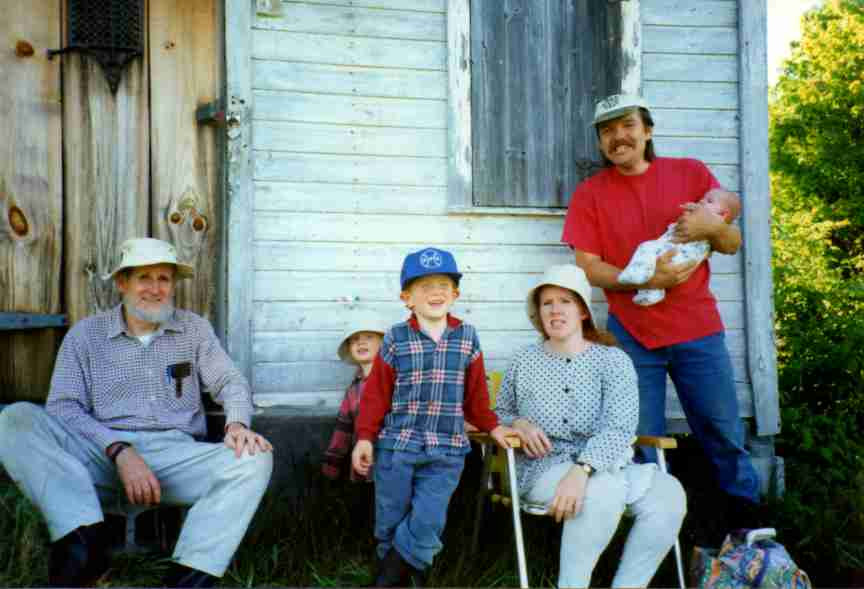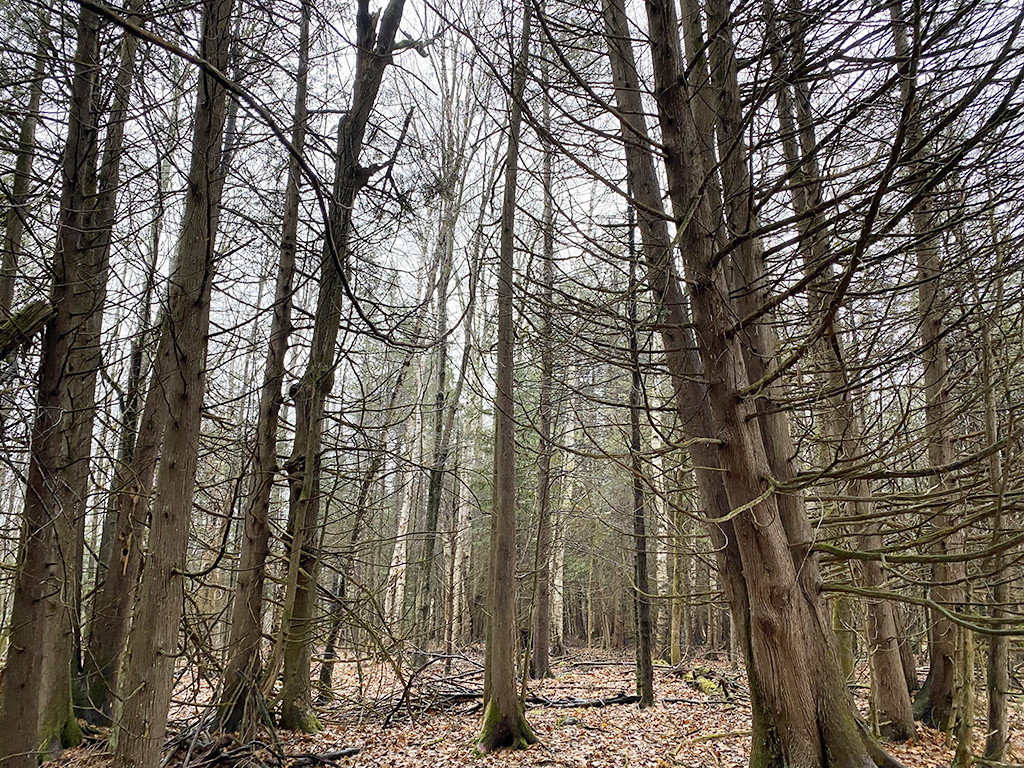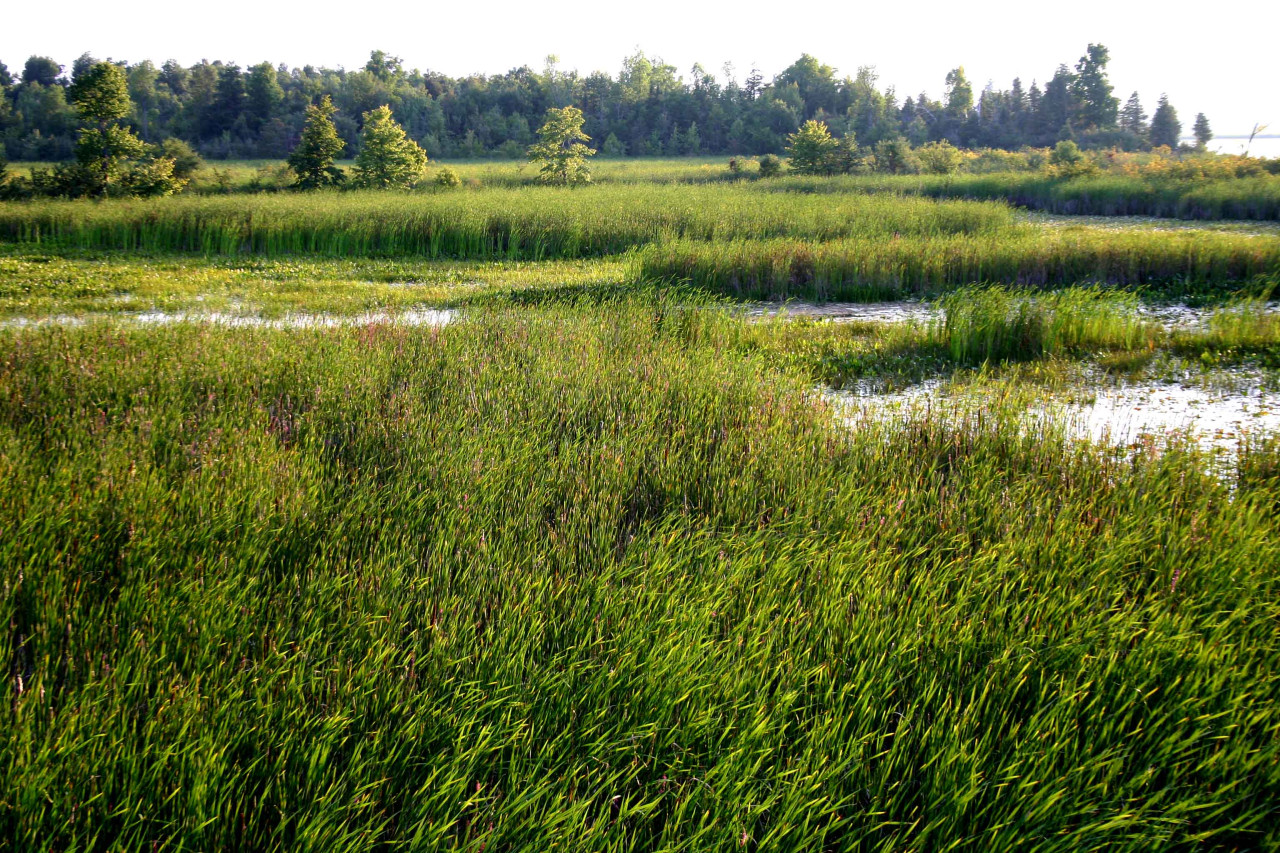Family's wetland donation shores up west Ottawa ecosystem
It's not very often a 50-acre swath of provincially-significant wetland becomes available in the City of Ottawa – but when it does, the Rideau Valley Conservation Foundation is keen to protect it.
The Foundation accepted the substantial section of Manion Corners Wetland this fall from siblings Paul Lackner and Colleen Green, who decided their family's natural property – lovingly referred to as "the farm" – belonged in a land trust for perpetual protection.
"Growing up, we used to hike to the back of the property where we had a small cabin, and we'd spend the day or occasionally overnight," Green remembered. "We would snowshoe or ski there in the winter and pick our Christmas tree."
Used for grazing before Green's grandfather bought it more than 60 years ago, the wetland is now an environmental gem in a rapidly growing part of the city.
"This property is really special," said Chelsey Ellis, Conservation Lands Manager at the Rideau Valley Conservation Authority (RVCA), which helps the Foundation manage donated lands. "First of all, it's a provincially-significant wetland, which tells us it plays an important role in local ecological and hydrological systems.
"But it also offers a key piece of habitat along the Ribbon of Life, where shore meets land. It goes from wetland to an upland site in a relative hurry, so these are the areas where you might get winter deer yards and other wildlife activity."
Ellis said a City of Ottawa report also found species at risk and other rare species in the same wetland complex near the property lines.
Green recalled an active beaver community on the land throughout her childhood, and more recently neighbours have spotted deer on the property as well as a black bear and cubs.
But Ellis said provincially-significant wetlands can no longer rely on their status alone to protect them.
"Given the ease with which new development rules have come along in the last 15 to 20 years, PSWs have become a priority for protection," Ellis said. "When PSWs are in private hands they can often be altered, which undermines the whole ecological system."
Land Donation Benefits All
Many of the Foundation's land donations are processed through the federal Ecological Gifts program, which offers a generous federal tax credit on the full market value of the donated property. Donors are also exempt from capital gains taxes on the gift.
But the benefits go far beyond financial recompense.
"Everyone benefits when land is protected," said Foundation director Diane Downey. "The donors know their cherished natural property will be maintained, while the community benefits from cleaner air and water, reduced flooding, increased biodiversity and a beautiful landscape."
Wetland protection is especially critical as extreme weather and climate change accelerate. Wetlands are some of the planet's most effective carbon sinks, and they're key to effective flood management because of their ability to collect and store excess stormwater.
A recent study from the University of Waterloo found Southern Ontario's wetlands provide $4.1 billion in water filtration services each year – and that it would cost up to $164 billion a year to replace their critical functions through expanded wastewater facilities.
Get involved
Families with natural properties are encouraged to consider land donation through the Foundation, either now or as part of their long-term estate planning. Having conversations with family members about your wishes now can save headaches for your family members down the road.
Those who can't donate land can support the costs associated with land acquisition through the Foundation's Conservation Lands Endowment Fund. The Foundation uses the fund's annual interest to cover maintenance, insurance and other routine costs of property ownership. Until Dec. 6, the Simmering Family is matching up to $5,000 in donations to the fund as part of the Foundation's Giving Tuesday campaign.
Green said her family was pleased to see their beloved property passed down into perpetual protection.
"I hope this donation will continue to support the local ecosystem into the future," she said.
Learn more about the Foundation at www.rvcf.ca.
When you subscribe to the blog, we will send you an e-mail when there are new updates on the site so you wouldn't miss them.




Comments